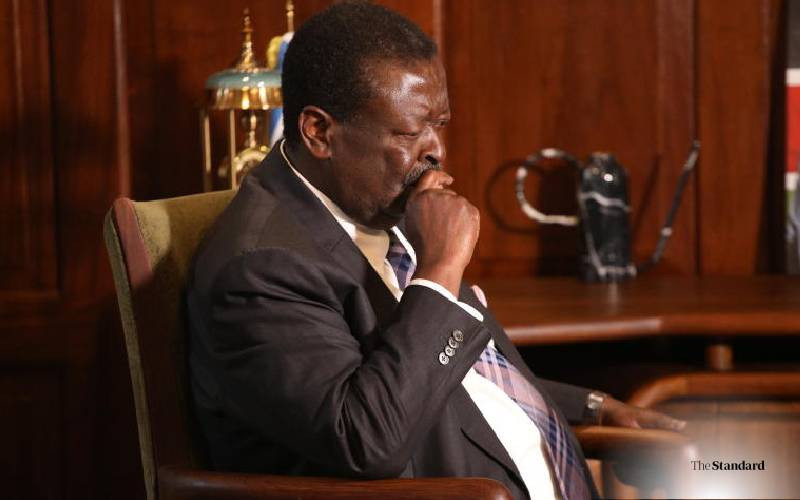
During Sheikh Hasina's rule, the power and energy sector enjoyed the ultimate lack of accountability. This is the first sector where the fascist regime established an ideal model for political and economic corruption, and later implemented it in other sectors, including education, health, and transportation. The basis of this structure was a black law, the Quick Enhancement of Electricity and Energy Supply (Special Provisions) Act, 2010, which contradicted the constitution's basic principles, undermined public interests, and destroyed the country's economic capacity.
After the fascist regime's fall and during the interim government's tenure, the demand to repeal this law quickly took shape. In the meantime, the validity of two of its sections, which were most detrimental to public interests, were challenged in the High Court followed by their annulment . Eventually, the government issued an ordinance to repeal the entire law.

But two articles were added in that ordinance that are potentially more dangerous than the repealed law. They not only undermine public interests, but also degrade the spirit and aspirations of the July uprising. But why is the interim government taking this seemingly anti-public stance? Before we look for the answer, let's see what this law actually contained and what became of it after the repeal.
The black law's history and evolution Often termed the "Impunity Act," the Quick Enhancement of Electricity and Energy Supply (Special Provisions) Act was supposed to be in force for a period of two years from 2010, but was later extended for a total of 16 years in four phases, with the implementation period being till 2026. Under the sub-heading "Publicity of the plans or proposal," Section 6(2) states, "Notwithstanding anything contained in sub-section (1), the Processing Committee mentioned in section 5 shall consult and bargain with a single or limited number of organizations about any purchase, investment plan or proposal and, with approval of the Minister, Ministry of Power, Energy & Mineral Resources, select an organization for the said work..
." That is, work can be awarded, with the consent of the minister, through communication and negotiation with a single or limited number of organisations, ignoring competitive tenders or bids. Under the sub-heading "Bar to jurisdiction of Court, etc," Section 9 states, "No question regarding the validity of any act done or purported to be done, any action taken or any order issued or direction given under this Act, shall be raised in any court.
" After Hasina's fall, Supreme Court lawyers Dr Shahdeen Malik and Tayeb-Ul-Islam Showrov filed a writ with the High Court, challenging the validity of sections 6(2) and 9. On November 14, 2024, the High Court bench of Justice Farah Mahbub and Justice Debashish Roy Chowdhury declared the provisions illegal. Then on November 28, 2024, the interim government repealed the law by promulgating the Quick Enhancement of Electricity and Energy (Special Provisions) (Repeal) Ordinance, 2024.
New 'impunity' in the ordinance In the repeal ordinance itself, the government has added new provisions for impunity in sections (2)(a) and (b) under Article 2. Section (2)(a) states, "Any contract entered into or any action taken under a contract entered into under the said act immediately before such repeal shall be deemed to have been validly entered into or taken." Section (2)(b) goes on to say, "Any proceeding under a contract entered into or taken under the said act shall continue or be carried out as if the said act had not been repealed.
" That is, all projects taken under the law till the repeal have been considered valid, and can continue. That means the government has repealed the law but considers all the previous sins as virtues. This is against the constitution's fundamental rights, the consumer's fair rights, and a violation of energy justice.
This ordinance has set a terrible precedent by hindering fair energy transition. So, is the repeal ordinance an attempt to protect the interests of the corrupt oligarchic class in the power and energy sector? Or is there a subversive attempt to make this government unpopular and lead it astray? Let us explore the possible reasons. First, the power and energy ministry was known as a hotbed of corruption and misrule during Hasina's rule.
An anti-national nexus of dishonest bureaucrats, businesspeople, and politicians was the driving force behind this misrule. They have created an oligarchic class and looted the sector by establishing a legal framework. This class has thrown away the people's rights by making plunderous expenses, and in turn, profits.
Because of them, the cost of generating electricity per unit grew from around Tk 2 in 2009-2010 to above Tk 11 in 2023-2024. Because of them, Bangladesh's power and energy sector has lost its domestic capacity and has become an import market. This oligarchic class has gradually weakened the sector's public branch and enriched privatisation in the name of reform.
They have created opportunities to loot thousands of crores in the name of capacity charges by keeping private power plants idle for years. To continue this looting and shield criminals of the fascist era, they have imposed these provisions. Second, the current energy adviser, who is the former energy secretary, is not keen on breaking the cycle of privatisation.
That is why, although the new government formed reform commissions on 11 issues, none has been formed for the power and energy sector as yet. Such anti-people decisions indicate towards his new position not being free from conflict of interest. Third, the main spirit of the student-mass uprising was to eliminate discrimination.
But discriminatory provisions have been left in place to stop all competition in the energy sector. Fourth, the nexus of corrupt bureaucrats, businesspeople, and politicians—who are allies of autocracy and are trying to prevent progress—has re-emerged. These looters of public wealth are determined to protect laundered money and have facilitated these new provisions.
By providing new legal protection for these crimes, the government has shown that the ghost of tyranny is still present, and instead of chasing it away, it may very well be protecting it. Shuvo Kibria is a senior journalist and engineer. Views expressed in this article are the authors' own.
Follow The Daily Star Opinion on Facebook for the latest opinions, commentaries and analyses by experts and professionals. To contribute your article or letter to The Daily Star Opinion, see our guidelines for submission. During Sheikh Hasina's rule, the power and energy sector enjoyed the ultimate lack of accountability.
This is the first sector where the fascist regime established an ideal model for political and economic corruption, and later implemented it in other sectors, including education, health, and transportation. The basis of this structure was a black law, the Quick Enhancement of Electricity and Energy Supply (Special Provisions) Act, 2010, which contradicted the constitution's basic principles, undermined public interests, and destroyed the country's economic capacity. After the fascist regime's fall and during the interim government's tenure, the demand to repeal this law quickly took shape.
In the meantime, the validity of two of its sections, which were most detrimental to public interests, were challenged in the High Court followed by their annulment . Eventually, the government issued an ordinance to repeal the entire law. But two articles were added in that ordinance that are potentially more dangerous than the repealed law.
They not only undermine public interests, but also degrade the spirit and aspirations of the July uprising. But why is the interim government taking this seemingly anti-public stance? Before we look for the answer, let's see what this law actually contained and what became of it after the repeal. The black law's history and evolution Often termed the "Impunity Act," the Quick Enhancement of Electricity and Energy Supply (Special Provisions) Act was supposed to be in force for a period of two years from 2010, but was later extended for a total of 16 years in four phases, with the implementation period being till 2026.
Under the sub-heading "Publicity of the plans or proposal," Section 6(2) states, "Notwithstanding anything contained in sub-section (1), the Processing Committee mentioned in section 5 shall consult and bargain with a single or limited number of organizations about any purchase, investment plan or proposal and, with approval of the Minister, Ministry of Power, Energy & Mineral Resources, select an organization for the said work...
" That is, work can be awarded, with the consent of the minister, through communication and negotiation with a single or limited number of organisations, ignoring competitive tenders or bids. Under the sub-heading "Bar to jurisdiction of Court, etc," Section 9 states, "No question regarding the validity of any act done or purported to be done, any action taken or any order issued or direction given under this Act, shall be raised in any court." After Hasina's fall, Supreme Court lawyers Dr Shahdeen Malik and Tayeb-Ul-Islam Showrov filed a writ with the High Court, challenging the validity of sections 6(2) and 9.
On November 14, 2024, the High Court bench of Justice Farah Mahbub and Justice Debashish Roy Chowdhury declared the provisions illegal. Then on November 28, 2024, the interim government repealed the law by promulgating the Quick Enhancement of Electricity and Energy (Special Provisions) (Repeal) Ordinance, 2024. New 'impunity' in the ordinance In the repeal ordinance itself, the government has added new provisions for impunity in sections (2)(a) and (b) under Article 2.
Section (2)(a) states, "Any contract entered into or any action taken under a contract entered into under the said act immediately before such repeal shall be deemed to have been validly entered into or taken." Section (2)(b) goes on to say, "Any proceeding under a contract entered into or taken under the said act shall continue or be carried out as if the said act had not been repealed." That is, all projects taken under the law till the repeal have been considered valid, and can continue.
That means the government has repealed the law but considers all the previous sins as virtues. This is against the constitution's fundamental rights, the consumer's fair rights, and a violation of energy justice. This ordinance has set a terrible precedent by hindering fair energy transition.
So, is the repeal ordinance an attempt to protect the interests of the corrupt oligarchic class in the power and energy sector? Or is there a subversive attempt to make this government unpopular and lead it astray? Let us explore the possible reasons. First, the power and energy ministry was known as a hotbed of corruption and misrule during Hasina's rule. An anti-national nexus of dishonest bureaucrats, businesspeople, and politicians was the driving force behind this misrule.
They have created an oligarchic class and looted the sector by establishing a legal framework. This class has thrown away the people's rights by making plunderous expenses, and in turn, profits. Because of them, the cost of generating electricity per unit grew from around Tk 2 in 2009-2010 to above Tk 11 in 2023-2024.
Because of them, Bangladesh's power and energy sector has lost its domestic capacity and has become an import market. This oligarchic class has gradually weakened the sector's public branch and enriched privatisation in the name of reform. They have created opportunities to loot thousands of crores in the name of capacity charges by keeping private power plants idle for years.
To continue this looting and shield criminals of the fascist era, they have imposed these provisions. Second, the current energy adviser, who is the former energy secretary, is not keen on breaking the cycle of privatisation. That is why, although the new government formed reform commissions on 11 issues, none has been formed for the power and energy sector as yet.
Such anti-people decisions indicate towards his new position not being free from conflict of interest. Third, the main spirit of the student-mass uprising was to eliminate discrimination. But discriminatory provisions have been left in place to stop all competition in the energy sector.
Fourth, the nexus of corrupt bureaucrats, businesspeople, and politicians—who are allies of autocracy and are trying to prevent progress—has re-emerged. These looters of public wealth are determined to protect laundered money and have facilitated these new provisions. By providing new legal protection for these crimes, the government has shown that the ghost of tyranny is still present, and instead of chasing it away, it may very well be protecting it.
Shuvo Kibria is a senior journalist and engineer. Views expressed in this article are the authors' own. Follow The Daily Star Opinion on Facebook for the latest opinions, commentaries and analyses by experts and professionals.
To contribute your article or letter to The Daily Star Opinion, see our guidelines for submission..















